UK Syria fighters: Nasser Muthana was a 'peacemaker'
- Published
Aiman, 19, denied Nasser Muthana was an extremist, saying it was 'rubbish' that he would incite violence
A British Muslim featured in an apparent recruitment video for jihadists in Iraq and Syria has been described as a peacemaker by a friend.
Aiman, 19, said Nasser Muthana, 20, from Cardiff, was "no extremist" but says they lost contact last year.
Mr Muthana is seen in the video holding a gun alongside Reyaad Khan, also 20 and from Cardiff.
Mr Muthana's father told the BBC this week he was "heartbroken" by the film featuring his son.
Nasser Muthana's younger brother, Aseel, 17, has also joined the jihadists abroad.
Aiman and his brother Abdullah, 24, have known the Muthana brothers all their lives and had a close relationship until late September.
'Intelligent boy'
"We were close family friends and then we actually got closer in high school," Aiman said.
Aiman said: "There wasn't a single bad word you could say about Naseer.
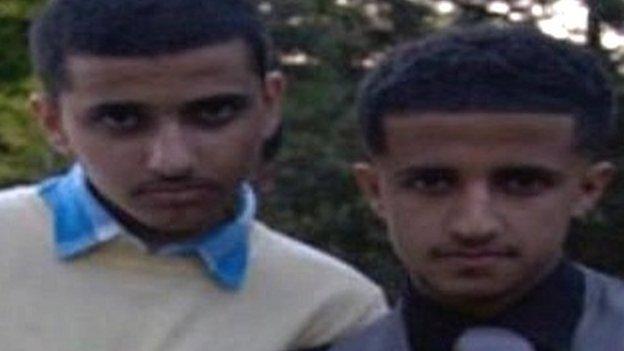
Close friends Naseer Muthana and Aiman photographed together as youngsters
"He was a very intelligent boy, very kind hearted, always liked to help people, never the sort of person who involved himself in any sort of violence - always the peacemaker," he said.
"If you were to ask the teachers in our high school they wouldn't say a bad word."
Aiman said Mr Muthana was "focussed" on his religion.
"He'd always go to Friday prayers... stay away from the bad influence... but anything too extremist, that wasn't Naseer. And that's coming from someone who knew him very well."
However, last September the friends lost contact because Aiman was studying and working whereas Mr Muthana was giving talks on Islam.
'Peacefully talking'
"No extremist, nothing to do with anything political whatsoever, just peacefully talking about our religion," he said.
"It never hit me that he would go abroad to help the people out in Syria, that didn't cross my mind whatsoever."
Aiman said his friend holding a gun in the footage did not mean he would be "killing every person in the world".
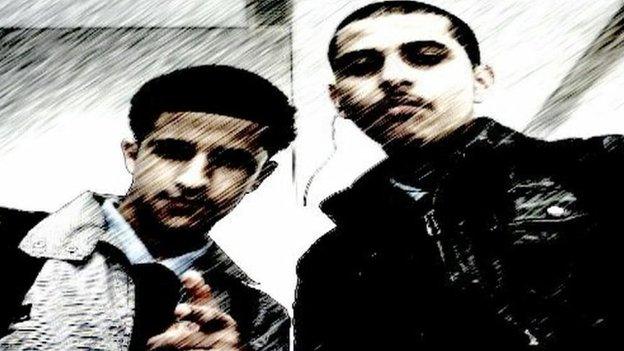
The friends grew up together and became very close in high school
"Whether he got brainwashed or not, that's a debatable thing," he said.
Sheikh Zane Abdo, imam at Cardiff's South Wales Islamic Centre, told parents during Friday's prayers that they must be responsible for their children's education.
He said children should be "connecting with the prophets" - not using social media to learn about other things like extremism and drugs.
Aiman said he did not believe Mr Muthana had been attending groups that would have encouraged him to travel to Syria, but added: "There could be social media. I can get access to someone on the other side of the world and speak to them. So it doesn't have to be face-to-face."
Aiman's brother Abdullah, 24, added: "I was totally shocked when I opened the BBC website. How on earth did he end up like that?"
He added: "He must've thought it was his duty to help the people of Syria and that's probably the only reason he went."
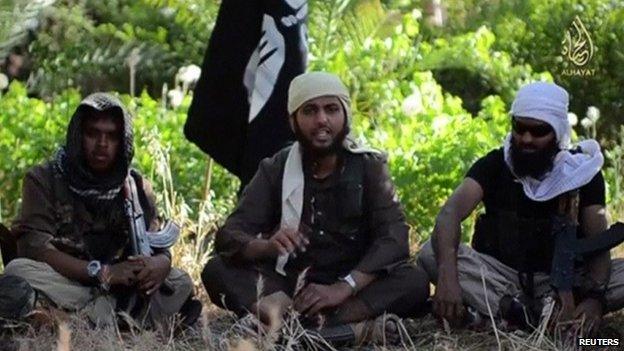
Reyaad Khan, Nasser Muthana and Abdul Rakib Amin, from Aberdeen, appear in the video
- Published27 June 2014
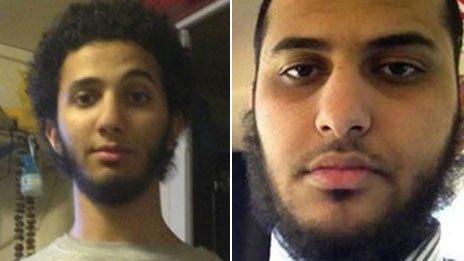
- Published27 June 2014
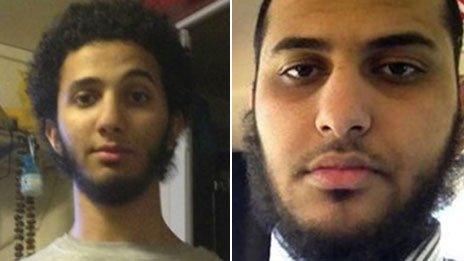
- Published27 June 2014
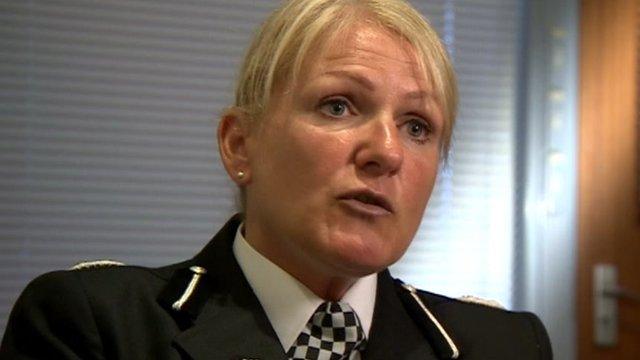
- Published23 June 2014
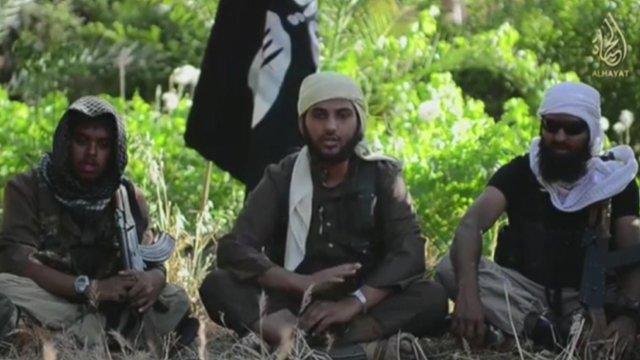
- Published23 June 2014

- Published21 June 2014
